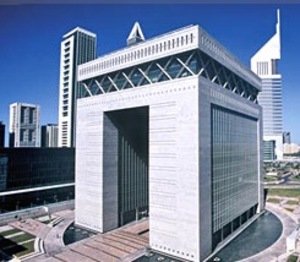Market Research in the Middle East
Market Research in Middle East can provide marketers with an opportunity to understand current growth trends and consumer needs.
Market Research in Middle East can provide marketers with an opportunity to understand current growth trends and consumer needs.

No end appears in sight for a robust economic recovery in the GCC. This article illustrates how Dubai and Qatar are hard hit in the global economic recession. Oman was the only stock market to show positive gains. While the Middle East / GCC region is down, the outlook appears more vibrant than in Developed markets, with stock markets making gains in positive territory.
In the June edition of Gulf Business, Mr. Welf Ebeling, EVP and COO of the “Leading Hotels of the World” indicated that while the number of 5 star hotels in Dubai is exploding, the next wave to follow is budget hotels.
Starting a business in a new country is challenging, as it is everywhere. As a foreigner if you intend to set up a business in Turkey, you first have to look at and get familiarized with the Foreign Direct Investment Law (No: 4875), which was introduced in Turkey in 2003. The most important principles introduced by this law are those of non-discrimination and equal treatment, as they set the legal framework of the liberal investment environment in Turkey.
According to the Foreign Direct Investment Law, the prerequisites and obligations for establishing a company with foreign capital will be equal to those for local companies. Consequently, the various compulsory permits in the past in founding a company with foreign capital are now eliminated. Companies that are founded with foreign capital as considered by the rules of the Turkish Commercial Code are considered Turkish companies. Therefore, all duties and responsibilities are identical despite the nature of the company's capital creation.
Additionally, within the new FDI law, there are no rules requiring Turkish participation in the capital or management of a company with foreign capital. A company may be established with 100% foreign capital, and almost all sectors are open to foreign capital. The company establishment procedures have also been simplified to a great extent. Now, with the efficient procedures, a company's registration and establishment of a company in Turkey can be completed in as little as one day. Companies must submit a standard form at one location and will not need to submit applications to many authorities for approvals. Also, the law provides that it is no longer mandatory to establish either a limited liability company or joint stock company. These all are important points to be taken into consideration by foreign investors who plan to do business in Turkey.
Qatar has a favorable business landscape.
 By Ahmad Al-Assad, Maktoob Research
By Ahmad Al-Assad, Maktoob Research
My wife once told in one of our shopping If we bought this couch I would never ask for anything . The couch was ugly and expensive, but I took my s words literally and was tempted by her promise: not asking for anything else! Well, I should have done more analysis into it. I found out later that my wife meant that she would never ask for anything unless she liked something else!
One of the most important questions in competitive mobile markets if you can keep your mobile number when changing between mobile operators, would you be willing to change. In most surveys, a two-digit percentage of respondents always say yes.
As a result of this incredible potential and competition booster, a technology called: Mobile Number Portability (MNP) came up. MNP enables mobile users to keep their mobile numbers when changing from one mobile network operator to another.
These days, it is practically impossible to pick up a major American newspaper without reading about Dubai. Whether it is the construction of the world’s tallest building (which will also include the world’s first Armani super-luxury hotel), the world’s biggest shopping mall or the world’s biggest amusement park (housing the biggest Universal Studios), Dubai’s incredible growth has made it a center of commercial attention and has brought the larger Middle East market into focus for many of the world’s businesses.
However, reaching Arab consumers is not always easy, and trying to reach them online presents its own special set of challenges. While Dubai’s high Internet penetration rates (over 60 percent) should present fertile ground for online research, you’ll be hard pressed to find much of it being conducted, even by local branches of some of the international research firms. And beyond Dubai, the rest of the Middle East offers additional obstacles for online researchers as well.
Qatar's diversification towards a knowledge & technology-based economy.